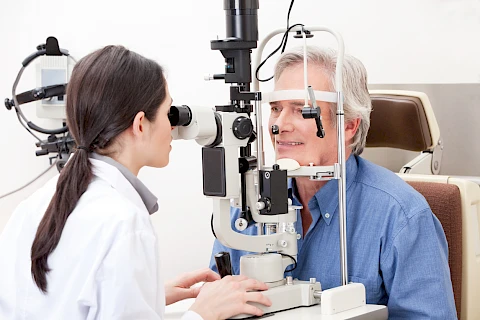
Cataracts are a common eye condition that affects many seniors. They cause a clouding of the lens, leading to blurry or cloudy vision, and can significantly impact daily life. Caregivers play a role in helping seniors manage cataracts, from diagnosis to treatment and recovery. Understanding how to support a senior with cataracts can improve their quality of life and make the journey smoother for both of you.
What Are Cataracts?
Cataracts are a condition where the lens of the eye becomes cloudy. This cloudiness can cause blurred vision, making it difficult to see clearly. Common symptoms of cataracts include:
- Cloudy or blurred vision
- Difficulty seeing at night
- Sensitivity to light and glare
- Seeing "halos" around lights
- Fading or yellowing of colors
Cataracts are more common in older adults and can affect one or both eyes, but they don't spread from one eye to the other. Awareness of these symptoms can help in early detection and treatment.
Early Detection and Diagnosis
Regular eye exams can detect cataracts early. Early detection can lead to better management and treatment outcomes. You should schedule regular eye exams for seniors and be aware of any vision changes. Talk to an eye care professional if you have blurry vision, trouble seeing at night, or are more sensitive to light. Consulting with an eye care professional at the first sign of these symptoms can lead to a proper diagnosis and timely treatment.
Daily Living Adjustments
As cataracts progress, certain adjustments in daily living can help manage the condition. Enhancing home lighting to reduce glare and improve visibility is crucial. Using magnifying glasses or large-print materials for reading can make a significant difference. You need to organize the home to remove tripping hazards and reduce the risk of falls. These small changes can greatly improve a senior's ability to navigate their home safely and comfortably.
Preparing for Cataract Surgery
Cataract surgery is a common and generally safe procedure to restore vision. In the preparation phase, consultations and tests will be conducted. You want to provide emotional support and reassurance to the senior to ease any anxiety. Discuss any medications or health conditions with the doctor to ensure a smooth surgery. Being well-prepared can help reduce stress and build confidence about the procedure.
Post-Operative Care
After cataract surgery, proper care aid in a smooth recovery. Some discomfort or itching in the eye is normal. You want to follow the doctor's instructions for medication and eye drops. Attending all follow-up appointments is necessary to monitor the healing process. Encourage the seniors to rest and gradually return to their regular activities. With careful post-operative care, most seniors can expect a significant improvement in their vision.
Long-Term Vision Care
Even after successful cataract surgery, maintaining long-term eye health is important. Regular eye check-ups should be scheduled to monitor any changes. Adopting a healthy diet rich in vitamins and minerals that support eye health, like leafy greens and fish, can be beneficial. Make necessary adjustments for any lasting vision changes to ensure safety and comfort. Consistent eye care can help maintain the benefits of cataract surgery and overall eye health.
Senior Helpers Southwest Pittsburgh Supports Seniors With Cataracts
Supporting a senior with cataracts involves understanding the condition, making daily adjustments, preparing for surgery, and ensuring proper post-operative and long-term care. Caregivers can help seniors maintain their independence and quality of life. For personalized support and professional caregiving services in Pittsburgh, Bethel Park, Bridgeville, Allegheny County, and Washington County, contact Senior Helpers Southwest Pittsburgh today.